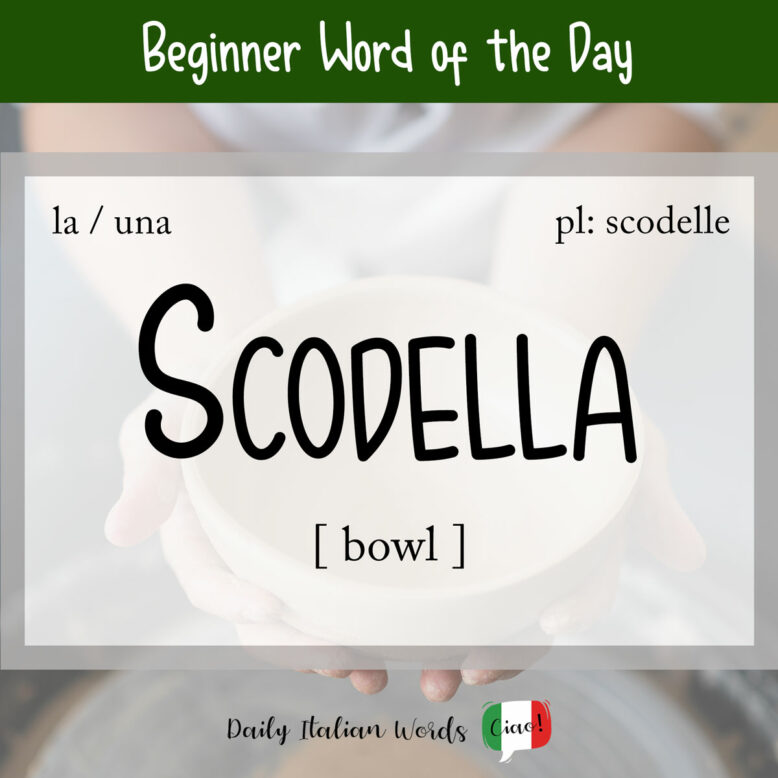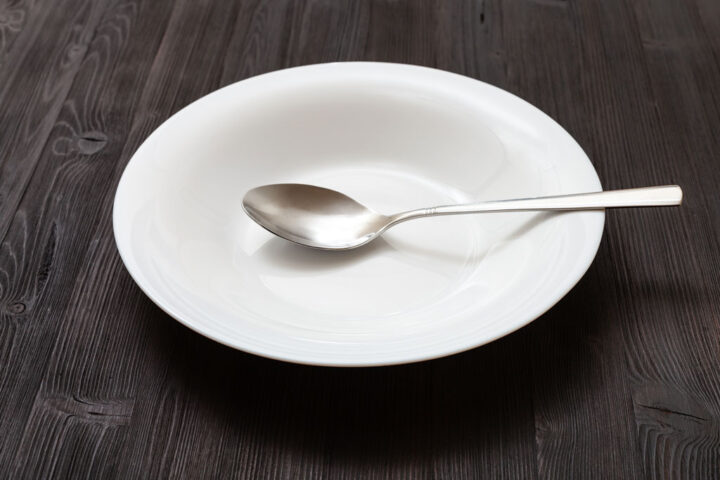Scodella (feminine, plural: scodelle) is just one of many words in Italian that can translate as bowl. I’ve settled on this particular word because it is the most generic, but don’t worry, I’ll touch upon the others below!

In addition to referring to a handleless cup-like bowl, such as the kind used for breakfast cereal, it can also denote a soup plate (known more specifically as a piatto fondo in Italian) which is characterised by its wide rim and deep centre.
Ho versato il brodo in una scodella di plastica.
I poured the broth into a plastic bowl.
Scodella can also translate as bowlful, referring to the quantity of food contained within the bowl rather than the bowl itself.
Ho mangiato due scodelle di zuppa.
I ate two bowlfuls of soup.

The diminutive scodellina can be used to talk about any bowl with smaller than normal dimensions, whereas scodellone is used for large bowls.
Synonyms for ‘Scodella’
I started this article by saying that there are many other possible translations for bowl in Italian, so why don’t we take a minute to go through them!
Ciotola
I was torn between choosing this word and scodella because both have a fairly broad definition. It is defined as a large bowl-shaped cup without handles that is used above all for liquids and sometimes small solids. Unlike scodella however, it can’t refer to a soup plate. It is also the term used for dog and cat bowls.

Piatto Fondo
Piatto fondo literally means deep plate and it is used to talk about any kind of soup bowl / plate with a wide rim and deep centre.

Insalatiera
An insalatiera is specifically a salad bowl. It has larger dimensions than bowls you’d use for eating.

Tazza
When you are talking specifically about deep cereal bowls, the term tazza (cup) is often preferred.

Zuppiera
A large tureen equipped with handles and a lid, used to serve broth.

Fruttiera
This term is used specifically for fruit bowls.

Heather Broster is a graduate with honours in linguistics from the University of Western Ontario. She is an aspiring polyglot, proficient in English and Italian, as well as Japanese, Welsh, and French to varying degrees of fluency. Originally from Toronto, Heather has resided in various countries, notably Italy for a period of six years. Her primary focus lies in the fields of language acquisition, education, and bilingual instruction.


